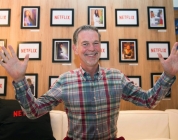
TV anywhere is one of the latest technophile buzz words. It says that you will be able to access premium content anywhere anytime, even live programming delivered real time.
The media love to root for the demise of the powerful. That’s why they report regularly on the unbundling of cable and satellite TV.
Though there is plenty of appeal to the a la carte purchasing of your favorite television channels, and in the long-run there will be a lot of demand-side pressure for such a marketplace, the traditional arrangements over which the major content producers, broadcasters, and cable TV companies maintain command will endure for many years to come.
Don’t get me wrong – there are great technologies, most notably online video platforms such as VOPED that deliver premium content securely with Digital Rights Management including live streaming, which will also fuel the market forces that will require the adoption of new business models to satisfy consumer demand.
Yet there are powerful economic reasons that will make this a gradual transition, not the least of which is the constantly lower margins for large content delivery networks (CDNs) that deliver the streams.
One example of challenging powerful TV forces came this week in the form of a court ruling that affirms the legality of Aereo’s business model, in which it delivers broadcast content online without compensating broadcasters (in just a few markets so far) – a full court trial is now expected to fully decide the issue.
While this is an intriguing story, and the major broadcasters are going to have to think long and hard about their business response to this legal challenge to their power.
Not so fast says one of the top thought leaders in the online video marketplace though. Dan Rayburn at streamingmedia.com makes a strong case that the business metrics for Aereo do not exist to support the media hype:
Whenever I write about Aereo, people always comment that we know Aereo is “disruptive” simply due to the fact that they are being sued by the major broadcasters.
But the point they are missing is that the broadcasters aren’t suing Aereo because they are scared of the company, they are scared of the idea and precedent it could set.
Aereo doesn’t have the means to disrupt cable TV, but in the hands of some like Amazon, it could cause a threat. I’m not saying Amazon is getting into that business, but if Aereo gets away with it, what happens if someone like an Amazon, who actually has the means and resources to disrupt markets, takes Aereo’s idea and runs with it?
Companies don’t threaten the traditional cable TV business, ideas do. For years we heard that Netflix was going to disrupt cable TV, yet years later we know that didn’t happen. In reality, most services never replace one another, it’s simply a complement to it, just as we have seen with Netflix.
The bright spot in this story for entrepreneurs such as me in the online video ecosystem is that there is a powerful movement afoot to create business models that will deliver more choices for consumers, particularly in niche markets.
YouTube begat Netflix; Netflix begat Aereo; Aereo (even just the concept) will begat new concepts.
Fortunately, these concepts will facilitate the slow but steady migration of premium content online, and these business models will require the sophisticated tools necessary to deliver it to consumers globally across all platforms.




